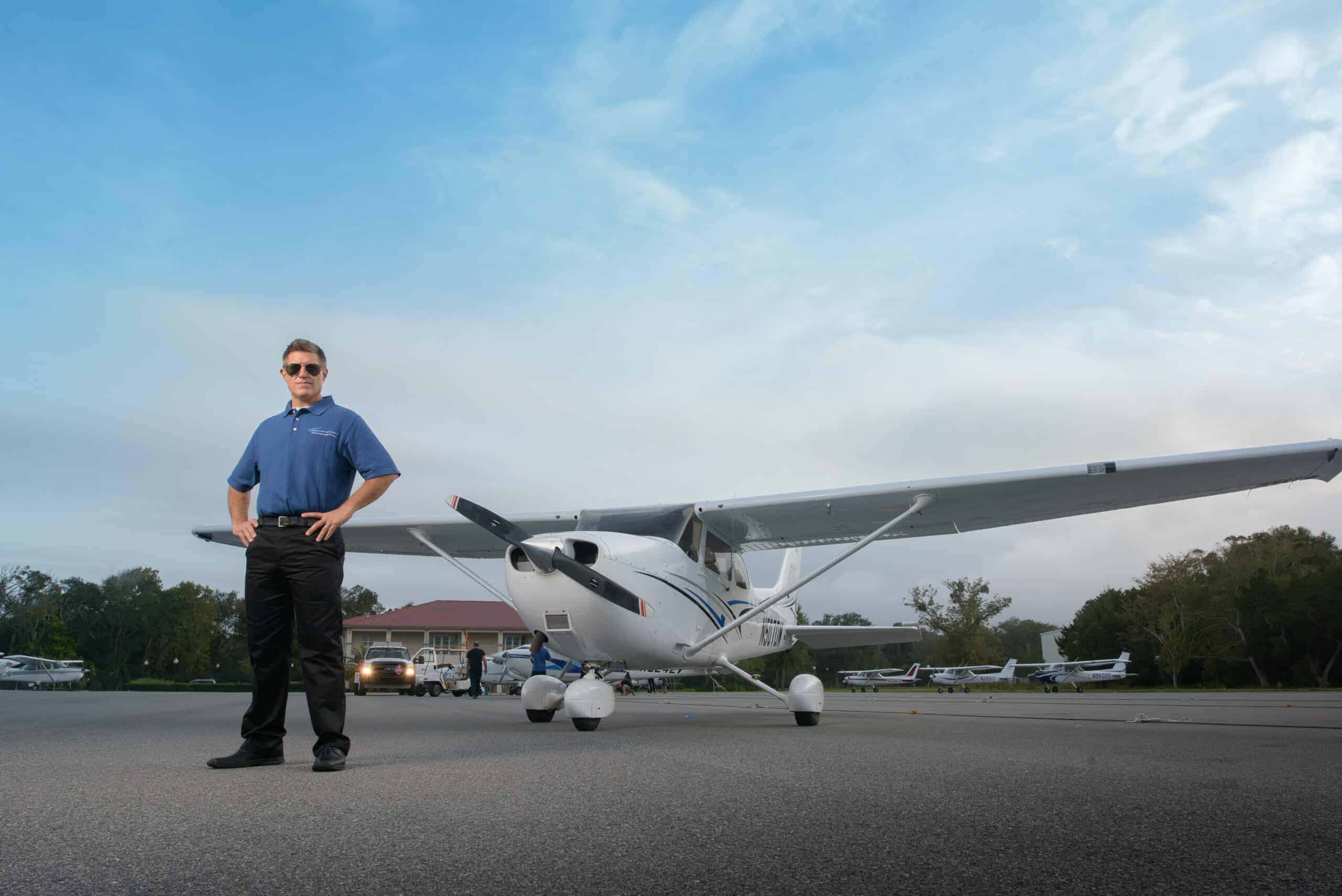Flying an aircraft for many is not just a career, it’s also a calling. The significance of the destination increases when you fly to one of the most well-known and largest cargo providers around the globe. UPS pilots do more than fly between points A and B. They also are responsible for time-sensitive cargo as well as ensuring safety under pressure.
If you’re fascinated by aviation and intrigued by the thought of assisting in global logistics, here’s an in-depth overview of the steps to becoming an UPS pilot. This includes certifications as well as training courses and what exactly the job entails.

Image credit: flightschoolusa.com
The Role of the UPS Pilot: Much More Than Flying
In contrast to commercial passenger pilots, UPS pilots are responsible for carrying documents, packages as well as essential goods over international and national airspaces frequently under strict deadlines. From managing complex weather systems, to managing aircraft loaded with high-value cargo, they operate in a high-risk, fast-paced environment. They also serve as spokespersons for the UPS brand and represent professionalism trust, reliability, technical know-how, and dedication.
UPS pilots have to be able manage everything from pre-flight plans and emergency protocols to communicating with air traffic control and ground operations. This job requires more than precision in flying but also sharp situational awareness and a dedication to safety.
UPS Pilot Qualification Requirements Set the bar high
UPS does not hand over the controls of its fleet to just anyone. UPS pilot qualification requirements are among the most stringent in the aviation of cargo and with good reason.
An undergraduate degree is mandatory for any candidate. Furthermore, they must possess an active FAA commercial pilot’s licence with both instrument and multi-engine ratings. Most UPS pilot candidates possess between 2,000 and 4,000 flight hours, which includes experience in turbine powered aircraft.
Medical fitness is also crucial. Pilots must be able to meet the strict FAA health standards, including good vision and the ability to pass a comprehensive medical exam. The applicants are required to be U.S. Citizens or hold appropriate work authorization. They should also be between the age groups of 23-65.
UPS places a high value on real-world knowledge, professionalism and expertise. These certifications were created to ensure that pilots have the skills to handle the requirements of international long-haul operations and UPS’s reputation for timely deliveries and security.
UPS Pilot Training: Get Prepared for the Real World
Even after meeting the qualifications, new hires undergo extensive UPS pilot training programs to prepare them for the unique demands of the company’s aircraft and routes.
Training begins with ground schools during which pilots study UPS-specific processes, procedures, and company expectations. Simulator sessions, which simulate real-world situations of flight and emergency take place. After achieving proficiency in simulators Pilots are then able to begin Initial Operating Experience (IOE) real flights under the direction of the senior UPS pilots.
These training programs are designed to be more than just technical. They prepare pilots for operational efficiency, crew coordination, and real-time problem-solving–critical components of UPS’s global delivery infrastructure.
How to become a UPS pilot: tracing your flight path
If you’re thinking about becoming an UPS pilot the path to success should begin with a high-quality flight education. Flight schools such as Florida Flyers Flight Academy offer an understanding of the basics of aeronautics. They also offer instruction in the field of navigation as well as safety guidelines.
You can then boost your abilities by adding flying hours, specifically in turbine-powered aircraft. You’ll be more attractive for UPS if you have experience with roles that focus on safety, teamwork, and time-sensitive operation.
Final Thoughts: A Career Which Offers More than Paychecks
Being a UPS Pilot isn’t an job that is easy. It requires dedication, technical mastery and the ability of performing under stress. If you’re willing to the task, this could be one of the most rewarding professions in aviation. It provides competitive compensation as well as travel opportunities across the globe with a sense of security in the job, as well as the chance to play an essential role in maintaining the world economy. The UPS cockpit could be just the right place for you in the event that you’ve always wanted to fly for a purpose.



